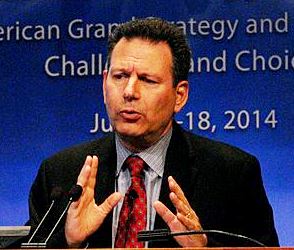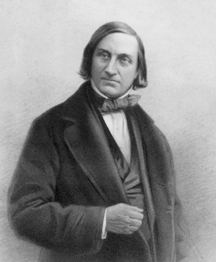A Quote by John Maynard Keynes
The great events of history are often due to secular changes in the growth of population and other fundamental economic causes, which, escaping by their gradual character the notice of contemporary observers, are attributed to the follies of statesmen or the fanaticism of atheists .
Related Quotes
I would be remiss, as a scientist who studied this, if I didn't mention the following two things: The first is that, most importantly, we need to do, as a society, in this country and globally, whatever we can to reduce population"....."Our whole economic system is based on growth, and growth of our population, and this economic madness has to end.
It is fundamental that the great powers of Congress to conduct war and to regulate the Nation's foreign relations are subject to the constitutional requirements of due process. The imperative necessity for safeguarding these rights to procedural due process under the gravest of emergencies has existed throughout our constitutional history, for it is then, under the pressing exigencies of crisis, that there is the greatest temptation to dispense with fundamental constitutional guarantees which, it is feared, will inhibit governmental action.
The people who see the population explosion in the Malthusian way - as a geometric progression - forget that population growth is not a biological issue. People are not increasing in numbers out of stupidity and ignorance. Population growth is an ecological phenomenon linked very intimately to other issues, such as the usurpation of the resources which allow people to live.
The real cause of the great upheavals which precede changes of civilisations, such as the fall of the Roman Empire and the rise of the Arabian Empire, is a profound modification in the ideas of the peoples .... The memorable events of history are the visible effects of the invisible changes of human thought .... The present epoch is one of these critical moments in which the thought of mankind is undergoing a process of transformation.
History shows that great economic and social forces flow like a tide over communities only half conscious of that which is befalling them. Wise statesmen foresee what time is thus bringing, and try to shape institutions and mold men's thoughts and purposes in accordance with the change that is silently coming on. The unwise are those who bring nothing constructive to the process, and who greatly imperil the future of mankind by leaving great questions to be fought out between ignorant change on one hand and ignorant opposition to change on the other.
They [ the government of Puerto Rico] are asking to be given the right to declare bankruptcy, which I think should be an option, as a last resort, if there is no other resource. But there also need to be measures, changes within the government of Puerto Rico, in the ways that the island's funds are administered, not just to deal with this budget issue, but also to have, to attract the economic growth that is necessary for Puerto Rico to begin to grow economically. They are losing population, and they are losing economically.
(...) contemporary art has become a kind of alternative religion for atheists. (...) For many art world insiders and art aficionados of other kinds, concept-driven art is a kind of existencial channel through which they bring meaning to their lives. It demands leaps of faith, but it rewards the believer with a sense of consequence. Moreover, just as churches and other ritualistic meeting places serve a social function, so art events generate a sense of community around shared interests




































